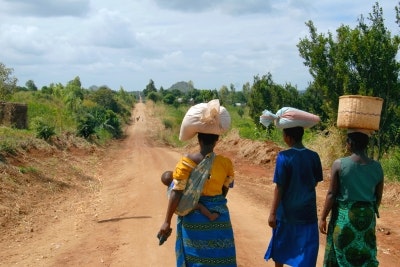
Growth, opportunity, and women owned businesses in Africa Women doing business in Africa face an array of serious challenges: they have to navigate outdated and byzantine regulations while they cope with unstable political conditions and inadequate infrastructure. They often have less time and resources and are working to actively and efficiently manage households and networks in addition to their companies. They are often supporting and mentoring other young women, and raising families.
But rather than hindering these self-determined and self-reliant women, these facts may actually be contributing to their success. Strong communities are able to share resources, collaborate together, and share winning strategies with each other. Capital strapped companies are certain to use their resources more effectively. And women are able to deeply tap the informal economy to support their work.
Recent attention on women owned companies in the tech sector has found that women tend to run more capital efficient companies. Women’s historical role in managing their households and coping with limitation has cultivated a resilience and self reliance that finds a way, despite barriers.
Tied more closely by cultural and biological factors to the practical business of living, women are also more likely to innovate solutions to profound problems–with wider implications for their communities and the world. This trend could be even greater in Africa, where collaborative models are embraced more frequently, and allow business ecosystems to fully and collectively exploit their capacity.
Working within greater restraints is making women impatient with what often passes for business as usual, and willing to make a stand, becoming powerful advocates for better government and better business.
Koh Walla runs a management consultancy firm in Cameroon. She points out that women, who are often mothers, don’t have hours to spend waiting to meet with officials. With international connections and clients around the world, Walla has become a powerful voice locally, where exorbitant tax rates, corruption, and extensive regulation make it difficult to do business. Walla leverages her international prestige to advocate for a better system. “It’s time consuming and expensive but I refuse to pay a bribe,” she explained.
In addition to approaching entrenched political and economic systems as outsiders (and thus potentially as reformers) women bring a greater flexibility and accountably to market. They tend to demonstrate greater agility when pivoting to meet market conditions, more creativity working within a budget, and they are more likely to center ecological principle in their business models.
Among the barriers they face, access to capital is a major issue. Many times opportunities for growth are lost because women cannot access the capital they need through traditional channels, or cannot access it quickly enough. Growing companies in dynamic emerging economies requires a quick eye for opportunity, but also the means to act quickly. And that means a healthy flow of capital that moves quickly enough to keep up with dynamic market.
Senegalese businesswoman Aissa Dionne saw an opportunity where others would see defeat. She was working as an artist in Dakar when a client declined to buy a painting, saying he needed to wait to have his office redecorated. She offered to do the work herself, and then sourced all the materials locally, including talent and labor, even designing and building some of the equipment she needed.
In addition to running a successful and profitable business, Dionne is preserving a culture of weaving and fabric preparation that goes back generations. She is working to support a flourishing tradition of artisans and tradesmanship. Her work and fabrics have received international attention and the patronage of prestigious designers in New York and London. Despite this, she estimates that her business could do four times as much business if she had better access to capital. The good news is, investors of the world are now listening.
Sources:
World Bank Group Gender Action Plan and Vital Voices Global Partnership, “Doing Business: Women in Africa”
Women 2.0, Help Fund Seeds, A Microlending Game Benefiting Women Entrepreneurs in Nairobi
VestaTrader is a social trading platform where users can learn daily trading cues from each other, VestaTrader and other trading experts.
From The VestaTrader Blog, post Thoughts On African Women and Financial Independence
